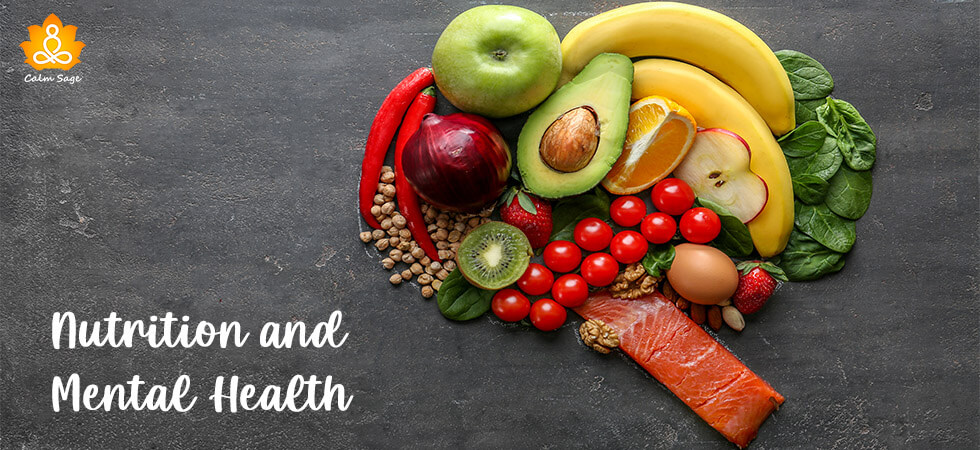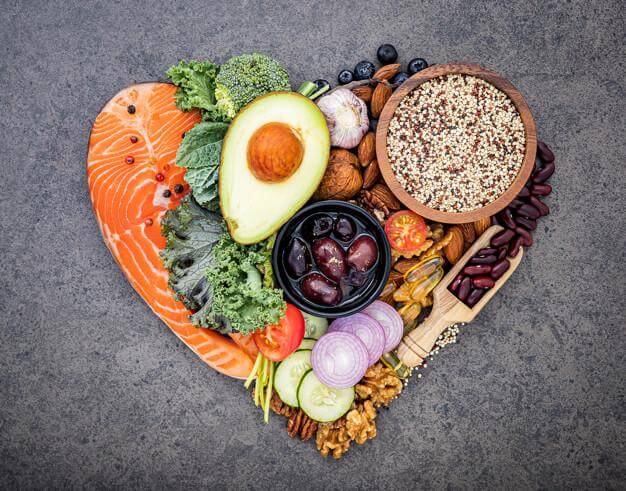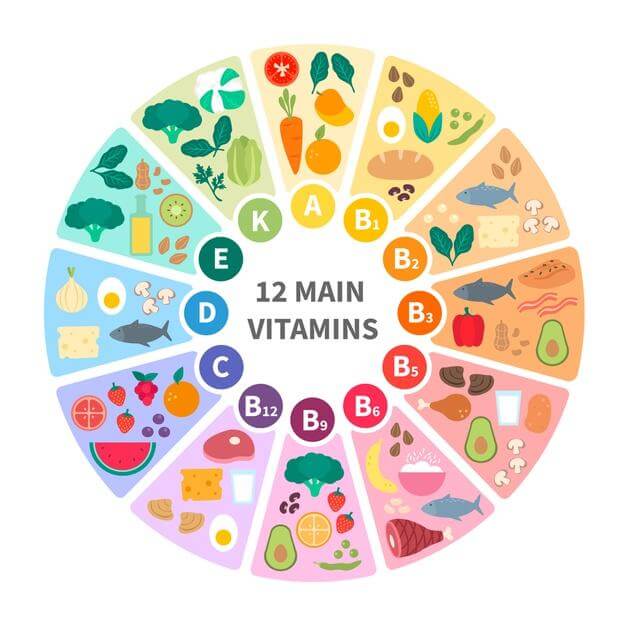The Indestructible Link Between Nutrition And Mental Health

Before beginning… if I ask you to name some major mental health conditions…what would they be?
Anxiety, stress, and depression…right? These are some common mental health conditions that obviously affect your mental health! But do you know they also affect your physical health? These mental health conditions (if not treated or controlled) can lead to various severe physical health conditions like heart conditions, type 2 diabetes, digestion issues, and more!
Also Read: You Surely Need These Anti Aging Foods After 40
Consecutively, your mental health and physical health are correlated with each other. Do you know according to the World Health Organization (WHO), depression will be a top health concern by 2030 throughout the world?
Rather than treating your mental health issues, Clinical Nutritionists have concluded in research that these concerns can be solved with the help of proper nutrition when provided in conjunction with therapy or medications.
Recently, I was studying a paper which had some questions like,
“Does proper nutrition help in preventing mental health issues?”
“Does a nutritional intervention help in the treatment of mental health conditions?”
I say, Yes, Nutrition does help people in the treatment and prevention of mental health conditions. Want to know how… then stay with me and keep reading, I have included various fact-based studies in this research blog. This blog covers the link between nutrition and mental health.
How does Nutrition Help in the Prevention of Mental Health Conditions?

There are several research papers that show there is a strong link between mental health issues and the overall quality of dieting. One study shows that 10 countries found a healthy diet pattern characterized on the basis of vegetables, whole grains, fruits, olive oil, antioxidants, low-fat dairy, and other essentials that helped in reducing the risk of anxiety and depression.
Meanwhile, the western diet that is based on a high intake of processed and red meats, sweets, refined grains, high-fat dairy products, potatoes, and butter along with a low intake of vegetables and fruits was associated with an increased risk of mental health issues like depression.
Also Read: 10 Healthy Morning Routine That will Help You Keep You Calm
Similarly, a different study showed that if you will highly comply with a Mediterranean dieting system, it is related to reduce the risk of depression by 32%. Moreover, a study shows that if you’re above 50 and consuming high saturated fatty acids along with added sugars may result in anxiety and depression.
This research is not only limited to old age people or adults. There are studies that have been done on teenagers and kids. A study performed in 2019 shows that there is a link between high intake of healthy foods like fish, nuts, dairy products, legumes, olive oil with reduced risk of mental health issues, especially during adolescence. Despite all these studies, we should always remind ourselves to consume healthy food especially in these times of uncertainty.
Additionally, there are some trials that show the accurate amount of food intake but according to my opinion, you should always choose quality over quantity. Also, there is a study wherein researchers called low diet consuming people for recalling their diet intake. I was shocked that no one remembered their diet. This shows that low dietary intake and less nutritional food also impact our memory.
How Nutrition Treats Mental Health Conditions

Since nutritional psychiatry is a newly evolved area, studies, researches, and interventions are quite limited. However, I have found one study named the SMILES trial based on the examination on the role of nutrition and proper diet for the treatment of depression. Over weeks participants received social support along with dietary counseling in conjunction with therapy or medications. Surprisingly, it resulted in reduced symptoms of depression.
The consultations related to dietary were more related to a Mediterranean dieting system. Also, the research emphasized more on the consumption of oily fish, vegetables, fruits, extra virgin olive oil, raw nuts, legumes, and whole grains. This study also allowed some amounts of dairy and red meat products.
Consecutively, participants showed better and improved results and reduced symptoms related to depression. The reason behind this was accounted to confounding variables like physical activity, smoking, and most importantly body mass index (BMI).
This study seemed most promising to me although it was a short-term and small study. Moreover, I am still trying to find studies based on large populations and terms.
Additionally, when I replicated the findings of the SMILES trial study, I found that it was based on new innovations and ideas and not all researchers and nutritionists agree with it. Like, I found another study wherein 1,035 adults were reported for obesity and overweight along with mild depressive symptoms.
In this study, the researchers ran an investigation of the impact of multi-nutrient supplements and food-associated behavioral activation on mental health outcomes. Sadly, the researchers were not able to find any significant difference in depressive symptoms when related to placebo after a year.
Similarly, I found one study wherein researchers found that dietary interventions helped in the reduction of symptoms of depression but sadly it did not work for anxiety.
Therefore, it is very difficult for me to conclude a resolution from limited research. Overall, I think more studies are needed to conclude if dietary patterns and the treatment of mental health conditions can be associated together.
Till now, I have concluded that proper nutrition helps in the improvement of mental health conditions but for the treatment, I think we should wait for more studies and interventions.
Nutritional Supplements and Mental Health:

As far observed and researched, I think scientists are more interested in finding out the possible effects of individual nutrients in the dietary supplements that show improvement on mental health. In this section, let’s find out which supplements result in improved mental health.
There are some nutrients like folate, iron, zinc, magnesium, and vitamin D, B6, and B12 that worsen mood, bring on episodes of anxiety, and risk of depression. However, I could not find how much amount or extra amount results in these mental health conditions.
For example, let’s say I was diagnosed with a deficiency in magnesium, therefore; my nutritionist prescribed me supplements of magnesium that helped in improving the symptoms. However, if someone is consuming the proper amount of magnesium, then it is not clear whether which supplement will provide benefits or improvement.
Furthermore, out of all fats, Omega-3 fatty acids play an important role in cell signaling and brain development. Due to the anti-inflammatory nature and importance in brain health, scientists have found Omega-3s for possible effects on the improvement of mental health.
Therefore, we have concluded that Omega-3 supplements are known to be effective for the treatment of anxiety and depression.
Moving on to vitamins and minerals, it is still unclear if we can substitute Omega-3 with other vitamins and minerals for boosting mood. Overall, as of now, studies are still going on and there are still a lot of nutritional supplements that are unknown for the improvement of mental health.
However, as per my research, I can conclude on my own that the majority of the nutrient supplements (consumed in varying amounts) are healthy for physical and mental health. Moreover, you can always take recommendations from your Nutritionist to take adequate amounts of nutritional supplements.
Additionally, adequate intake of proper nutrients also improves the immune system. Having said that it is really very important to take care of your immune system to prevent yourself from catching novel coronavirus. An adequate amount of nutrition will also help in combating illness and loneliness that occurred from the effects of Coronavirus. With this, I am signing off!
That’s all folks! I hope this piece of information encourages you to take proper nutrition and diet for improving your mental health and physical health.
Comment down and share your favorite nutritional snack or dish and I will help you with some nutrition-based facts related to it. For more such informational content, follow Calm Sage on all social media platforms.
Stay healthy!
Thanks for reading!
Next Read:
How Skin Care Routine Improves Mental Health
Fatigue & Tiredness: Why Do You Feel Tired and How To Fight It
Creating A Mindful Morning Routine For A Better Life And Happier You




















